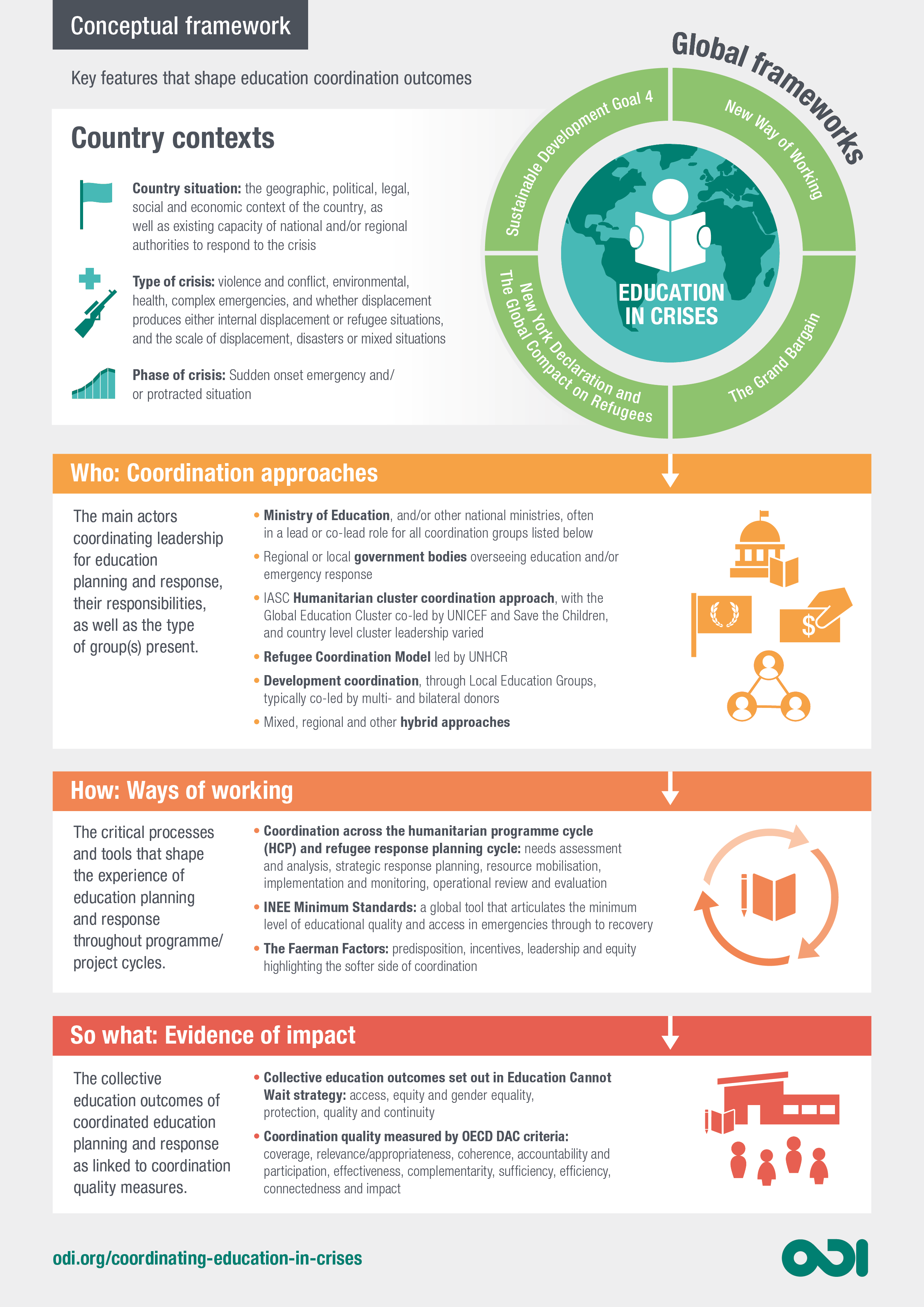Over the last decade, violent conflicts have surged by two-thirds and displacement is currently at a record high and length – around 71 million people have been forcibly displaced for as long as 20 years on average. In education, a different but equally serious crisis exists. In low- and middle-income countries, some 258 million children, adolescents and youth are out of school, and amongst those who are at school, roughly half of students go through school without acquiring basic foundational skills.
A need to better understand how to strengthen formal coordination for education in emergencies and protracted crises has led to research focused on the following central question: how can humanitarian and development actors more effectively coordinate planning and response to strengthen education outcomes for children and young people affected by crises?
This synthesis paper draws together evidence from the Global analysis report and from across country case studies conducted on Bangladesh, Chad, the Democratic Republic of Congo, Ethiopia, Iraq and Syria, chosen as they have an existing programme supported by Education Cannot Wait; and a major international coordination presence. In addition to presenting findings, included here are recommendations for actions that can be taken by key stakeholders, including governments, country-based education providers, and global humanitarian and development actors.
It can’t be done alone: why coordination is vital in responding to education crises
Coronavirus has led to education disruption across the world, coordination by humanitarian actors to ensure education continuity is crucial.
Susan Nicolai, Vidya Diwakar, Amina Khan, Dina Mansour-Ille and Allison Anderson



